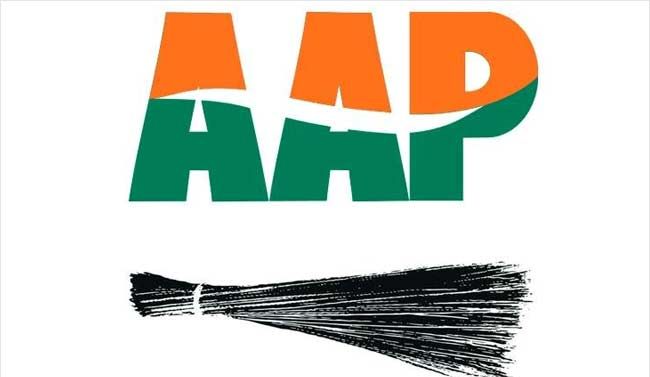Chandigarh: For a political party that was taking a serious shot at coming to power in Punjab less than two years ago, the Aam Aadmi Party (AAP) appears to have gone wayward.
Despite the electorate in Punjab reposing trust in the party by making it the principal opposition in the first ever assembly polls that it contested in February last year, the party leadership in Punjab and in Delhi have brought it to a new political low with a series of flip-flops and self-goals.
The AAP, which has 20 seats in the 117-member state assembly, relegated the formidable political alliance of the Shiromani Akali Dal and BJP to a humiliating third slot but is fast losing its votebank in the state.
In recent by-elections, be it for Lok Sabha or assembly seats, the AAP candidates have not only fared badly but had to face humiliation by even losing their security deposits.
In the Shahkot assembly seat bypoll last month, the AAP candidate got a mere 1,900 votes.
Each one of the top leaders in the AAP Punjab unit is on its own journey while the Delhi leadership of the party, including AAP national convener and Delhi Chief Minister Arvind Kejriwal and Punjab in-charge Manish Sisodia, show wariness, indifference and even suspicion about the Punjab leaders.
Senior AAP leader and Leader of Opposition in the state assembly Sukhpal Singh Khaira is known to shoot off his mouth on every matter. His recent comments justifying the ‘Referendum 2020’ propped up by foreign-based radical elements who are demanding a separate Sikh homeland, or Khalistan, has sparked a new controversy for him and the AAP.
Khaira, a former Congressman, has left the party embarrassed on earlier occasions as well.
Just about two years back, the AAP was riding high on popularity in Punjab and many believed it was all set to form its first full-fledged state government.
That was not to be.
Kejriwal and his core group of leaders seem to have lost interest in Punjab affairs for now. Kejriwal’s apology to senior Akali Dal leader and former cabinet minister Bikram Singh Majithia earlier this year, which happened without even consulting the Punjab leadership of the party, led to resignations within the party with the cadres on the ground feeling disappointed.
AAP Punjab unit president and MP Bhagwant Mann, who has had his own string of controversies earlier, and co-president Aman Arora, resigned from their posts after Kejriwal’s sudden apology.
Kejriwal and other AAP leaders, in the run-up to the 2017 assembly polls, had openly accused Majithia of patronising the drugs mafia in Punjab. They even called him a “drug lord”.
When Majithia went to court in a defamation case against the AAP leadership, the Delhi leaders chickened out and Kejriwal wrote an apology letter to Majithia.
Offering apologies and doing voluntary service (kar seva) to atone for political sins is nothing new for AAP leaders.
The ‘Youth Manifesto’ of AAP, released before the assembly polls, carried a photograph of ‘Harmandir Sahib’, the holiest and most revered Sikh shrine of Sikh religion, with an image of a broom, the AAP’s party symbol. This led to a religious uproar in Sikh dominated Punjab.
Kejriwal and other leaders washed utensils at the Golden Temple complex to “atone” for the political and religious faus pax.
AAP leader Ashish Khetan compared the same manifesto to religious scriptures like Granth Sahib, the Bible and the Gita. The AAP had to again seek forgiveness for this.
The AAP’s stand on sharing of river waters varies in Delhi and Punjab, leaving the party embarrassed at times.
The electorate in Punjab, which gave four seats to AAP (out of 13 Lok Sabha seats), has been left disaapointed. Two of the AAP MPs continue to be suspended from the party for the last three years.
If AAP is to revive its position in Punjab, its leadership — in Punjab and in Delhi — would have to take drastic steps to stop the erosion of its base. Otherwise, the party would end up being a one-time wonder.
IANS

